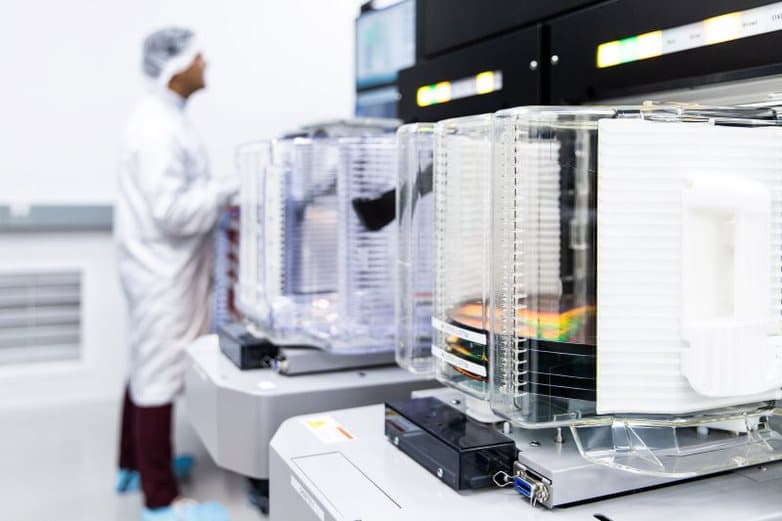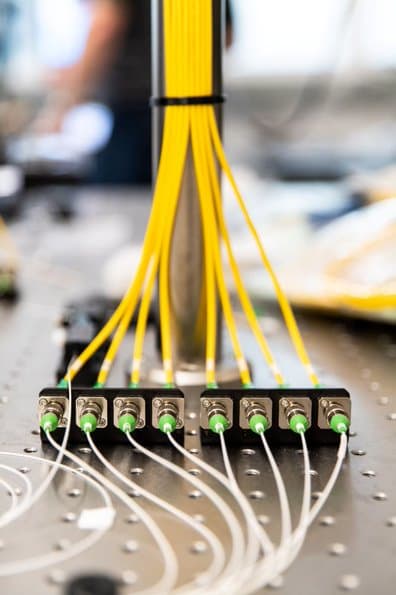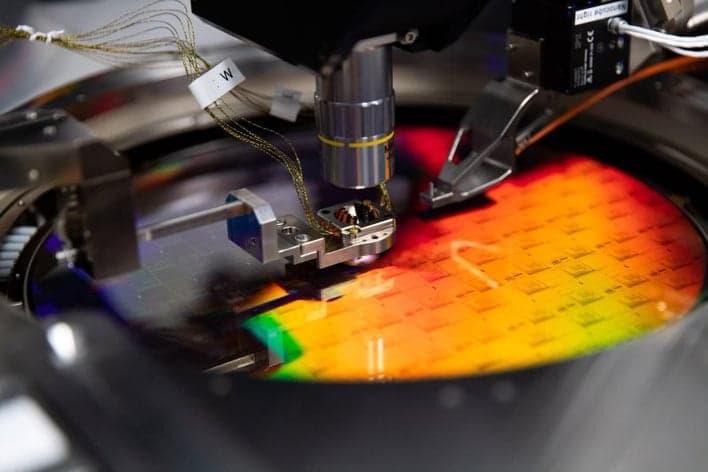I’m excited to welcome PsiQuantum — a company building a scalable, fault tolerant, silicon photonic quantum computer — to the M12 portfolio.
The renowned physicist Richard Feynman said, “Nature isn’t classical…and if you want to make a simulation of nature, you’d better make it quantum mechanical, and by golly it’s a wonderful problem, because it doesn’t look so easy.” Feynman’s statement highlights two key ideas, both of which emphasize why we are excited to invest in PsiQuantum: truly emulating nature to foster new discoveries and breakthroughs requires a quantum approach. Secondarily, building a quantum computer is really hard.


Quantum computing promises to be a world-changing technology, but it’s important to look beyond the hype to understand why. The laws of quantum mechanics — the laws that govern the behavior and interactions of subatomic particles like electrons — form the foundation of quantum information science. This field has given rise to new classes of algorithms to solve many computationally hard problems, and — in some cases — previously intractable problems. Feynman’s intuition and key insight was that a computer operating by the rules of quantum information science could most accurately predict the behavior and characteristics of natural systems at their most fundamental level.
While we have seen incredible advances in computational chemistry and materials science enabled by increasingly powerful classical computers, key modelling capabilities remain intractable, or require simplifying assumptions and approximations that don’t scale. This is especially true for some of the most commercially relevant challenges. For example, we still don’t fully understand the mechanisms that would prompt a material to become superconducting at high temperatures. And in chemistry, our ability to accurately simulate the system dynamics and evolution of molecules with more than just a few atoms is significantly limited. A quantum computer has the potential to unlock commercial value in scenarios where current compute power is the constraint. Such a machine would also foster a new wave of developments in quantum algorithms in chemistry, materials, and other domains.
Feynman’s statement also eludes to the monumental technical challenge of building a useful quantum computer. But this is PsiQuantum’s goal. Their aim is to achieve it with a photonics-based substrate and a quantum computing architecture that is well suited to the advantages of photonics. It’s worth noting that PsiQuantum’s approach is different from Microsoft’s efforts in topological qubits (Microsoft’s approach would enable error correction in hardware via topological protection from local noise). PsiQuantum and Microsoft have different sets of engineering challenges to address with their distinct approaches, but the companies share the vision for a scalable, fault tolerant quantum computer.
PsiQuantum’s founders are renowned leaders in linear optical quantum computing. After spending 10+ years advancing the field in academia, they launched the company in 2015. Since then, they have attracted experts in silicon photonics, quantum architecture and semiconductor engineering to the team, including some of the most talented and distinguished researchers in fault tolerance and error correction. Needless to say, the team has deep roots in the quantum community.

Under the leadership of a sought-after founding team — Jeremy O’Brien (CEO), Terry Rudolph, Pete Shadbolt (CSO), and Mark Thompson (CTO) — PsiQuantum is focused on building photonic qubits with well-established semiconductor techniques and material substrates. They’re working with the world’s top commercial foundries — a testament to the company’s engineering-oriented efforts, instead of a reliance on the creation of fundamental scientific breakthroughs to make progress.
While it’s enticing to imagine the benefits and opportunities of a quantum computer, PsiQuantum isn’t distracted by what’s beyond the finish line. They are disciplined and focused on the task at hand: delivering on a machine with hundreds of error-corrected, logical qubits. We at M12 have been impressed by the PsiQuantum team and look forward to their continued development.
For more M12 news, follow us on Twitter.

